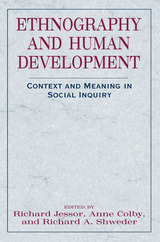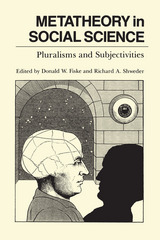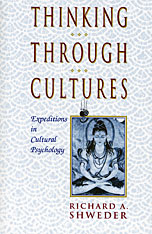
The Child: An Encyclopedic Companion offers both parents and professionals access to the best scholarship from all areas of child studies in a remarkable one-volume reference.
Bringing together contemporary research on children and childhood from pediatrics, child psychology, childhood studies, education, sociology, history, law, anthropology, and other related areas, The Child contains more than 500 articles—all written by experts in their fields and overseen by a panel of distinguished editors led by anthropologist Richard A. Shweder. Each entry provides a concise and accessible synopsis of the topic at hand. For example, the entry “Adoption” begins with a general definition, followed by a detailed look at adoption in different cultures and at different times, a summary of the associated mental and developmental issues that can arise, and an overview of applicable legal and public policy.
While presenting certain universal facts about children’s development from birth through adolescence, the entries also address the many worlds of childhood both within the United States and around the globe. They consider the ways that in which race, ethnicity, gender, socioeconomic status, and cultural traditions of child rearing can affect children’s experiences of physical and mental health, education, and family. Alongside the topical entries, The Child includes more than forty “Imagining Each Other” essays, which focus on the particular experiences of children in different cultures. In “Work before Play for Yucatec Maya Children,” for example, readers learn of the work responsibilities of some modern-day Mexican children, while in “A Hindu Brahman Boy Is Born Again,” they witness a coming-of-age ritual in contemporary India.
Compiled by some of the most distinguished child development researchers in the world, The Child will broaden the current scope of knowledge on children and childhood. It is an unparalleled resource for parents, social workers, researchers, educators, and others who work with children.

As part of the American Anthropological Association's centennial celebration, the executive board sponsored a presidential session honoring Geertz. Clifford Geertz by His Colleagues compiles the twelve speeches given then by a distinguished panel of social scientists along with a concluding piece by Geertz in which he responds to each speaker and reflects on his own career. These edited speeches cover a broad range of topics, including Geertz's views on morality, cultural critique, interpretivism, time and change, Islam, and violence.
A fitting tribute to one of the great thinkers of our age, this collection will be enjoyed by anthropologists as well as students of psychology, history, and philosophy.

Part 1, informed by a post-positivist philosophy of science, argues for the validity of ethnographic knowledge. Part 2 examines a range of qualitative methods, from participant observation to the hermeneutic elaboration of texts. In Part 3, ethnographic methods are applied to issues of human development across the life span and to social problems including poverty, racial and ethnic marginality, and crime.
Restoring ethnographic methods to a central place in social inquiry, these twenty-two lively essays will interest everyone concerned with the epistemological problems of context, meaning, and subjectivity in the behavioral sciences.


While various points of view are expressed in these nineteen essays, they have in common several themes, including the comparison of social and natural science, the role of knowledge in meeting the demands of society and its pressing problems, and the nature and role of subjectivity in science. Some authors hold that subjectivity cannot be studied scientifically; others argue that it can and must be if progress in knowledge is to be made. The essays demonstrate the philosophical pluralism they discuss and give a wide range of alternative positions on the future of the social and behavioral sciences in a postpositivist intellectual world.

A discipline is emerging called cultural psychology; it will serve as a force of renewal for both anthropology and psychology. In this book Richard Shweder presents its manifesto. Its central theme is that we have to understand the way persons, cultures, and natures make each other up. Its goal is to seek the mind indissociably embedded in the meanings and resonances that are both its product and its components.
Over the past thirty years the person as a category has disappeared from ethnography. Shweder aims to reverse this trend, focusing on the search for meaning and the creation of intentional worlds. He examines the prospect for a reconciliation of rationality and relativism and defines an intellectual agenda for cultural psychology.
What Shweder calls for is an exploration of the human mind, and of one’s own mind, by thinking through the ideas and practices of other peoples and their cultures. He examines evidence of cross-cultural similarities and differences in mind, self, emotion, and morality with special reference to the cultural psychology of a traditional Hindu temple town in India, where he has done considerable work in comparative anthropology. And he critiques the concept of the “person” implicit in Western social science, as well as psychiatric theories of the “subject.” He maintains that it will come as no surprise to cultural psychology if it should turn out that there are different psychological generalizations or “nomological networks”—a Hindu psychology, a Protestant psychology—appropriate for the different semiotic regions of the world. Shweder brings the news that God is alive not dead, but that there are many gods.

In this volume, anthropologists, behavioral scientists, and historians explore topics ranging from the Western ideology of "midlife decline" to cultural representations of mature adulthood that operate without the category of middle age. The result is a fascinating, panoramic collection that explores the myths surrounding and the representations of mature adulthood and of those years in the life span from thirty to seventy.

Why do American children sleep alone instead of with their parents? Why do middle-aged Western women yearn for their youth, while young wives in India look forward to being middle-aged? In these provocative essays, one of the most brilliant advocates of cultural psychology reminds us that cultural differences in mental life lie at the heart of any understanding of the human condition.
Drawing on ethnographic studies of the distinctive modes of psychological functioning in communities around the world, Richard Shweder explores ethnic and cultural differences in ideals of gender, in the life of the emotions, in conceptions of mature adulthood and the stages of life, and in moral judgments about right and wrong.
Shweder, a cultural pluralist, dares readers to broaden their own conceptions of what is good, true, beautiful, and efficient and to take a closer look at specific cultural practices--parent/child cosleeping, arranged marriage, male and female genital modifications--that we may initially find alien or disturbing. He invites us to reject both radical relativism (the view that whatever is, is okay) and imperial visions of universal progressive cultural development (for example, the idea that "the West is Best") and to engage in more deeply informed cultural critique.
The knowable world, Shweder observes, is incomplete if seen from any one point of view, incoherent if seen from all points of view at once, and empty if seen from nowhere in particular. This work strives for the "view from manywheres" in a culturally diverse yet interdependent world.
READERS
Browse our collection.
PUBLISHERS
See BiblioVault's publisher services.
STUDENT SERVICES
Files for college accessibility offices.
UChicago Accessibility Resources
home | accessibility | search | about | contact us
BiblioVault ® 2001 - 2024
The University of Chicago Press









